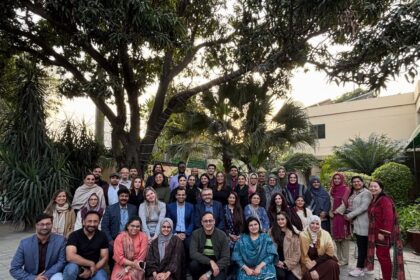The Ministry of National Health Services in Pakistan is delivering rapid and comprehensive medical aid to regions affected by severe flooding, according to Health Minister Mustafa Kamal. The ministry, working in collaboration with the National Disaster Management Authority (NDMA) and provincial governments, has ensured uninterrupted support for communities displaced or harmed by recent floods, particularly in Khyber Pakhtunkhwa and Gilgit-Baltistan.
In a media briefing, Health Minister Mustafa Kamal outlined that the federal health ministry initiated relief operations proactively, not waiting for formal requests from the provinces. All medical needs relayed by provincial governments were fully and promptly addressed. He emphasized that medicines were delivered in full according to the specific requirements from each area and that medical supplies were dispatched without delay.
The minister highlighted the swift deployment of medical teams to flood-hit areas. When a request was received from Shangla district, an 18-member team of doctors from the Pakistan Institute of Medical Sciences (PIMS) and Polyclinic Hospital was sent to deliver on-ground care to displaced residents. Similar support was provided to Buner, fulfilling targeted requests for specialist doctors, including pediatricians, orthopedics, and gynecologists.
To curb the outbreak of disease, large consignments of mosquito nets were also distributed to the affected regions as part of preventive health measures, in addition to curative treatments. The health ministry recognized that controlling vector-borne and waterborne diseases is as crucial as treating injuries and existing illnesses after natural disasters.
Detailed relief efforts include the provision of 16,000 antibiotics, 14,000 antipyretics, and 10,000 painkillers to the affected districts. Over 250,000 pentavalent vaccines and 150,000 rubella and measles vaccines were distributed, along with more than 6,000 oral rehydration salts for patients. Gilgit-Baltistan specifically received additional supplies, including 1,400 antibiotics, 40,000 painkillers, and 1,000 anti-allergy medications. Overall, Khyber Pakhtunkhwa was sent 3,410 kilograms of assorted medicines, while Gilgit-Baltistan received 350 kilograms. Vaccines are being used to combat illnesses resulting from stagnant water and overcrowded shelters.
Minister Kamal said all federal health institutions remain on high alert, with a strict monitoring mechanism to assess needs and coordinate responses. Dedicated teams are working around the clock, and a Command and Control Room has been set up at the National Institute of Health to ensure 24/7 real-time monitoring and communication with local authorities. The minister confirmed that all relief supplies have been provided directly by the federal government, without the need for foreign assistance or donations, and that the ministry is prepared to address any emerging demands as conditions develop.
Discussing collaboration, Kamal explained the ministry’s coordination with provincial governments, local teams, and health departments. All communication lines remain open, and there is real-time data collection from the field to ensure accurate, need-based distribution of medical resources. While formal coordination with elected representatives, such as MNAs and MPAs, has not been established, the ministry continues to engage all possible channels, focusing on authentic needs reported by official bodies.
The minister also clarified that, although the ministry is in regular contact with international partners like the World Health Organization (WHO), all current needs have been met internally. He affirmed that further support from partners would be requested only if the situation escalates or resources run short.
Mustafa Kamal concluded by emphasizing the government’s commitment to stand with affected citizens at every step, expressing prayers for the country’s swift recovery from this calamity and reassurance that authorities remain vigilant and ready for any further emergencies.











